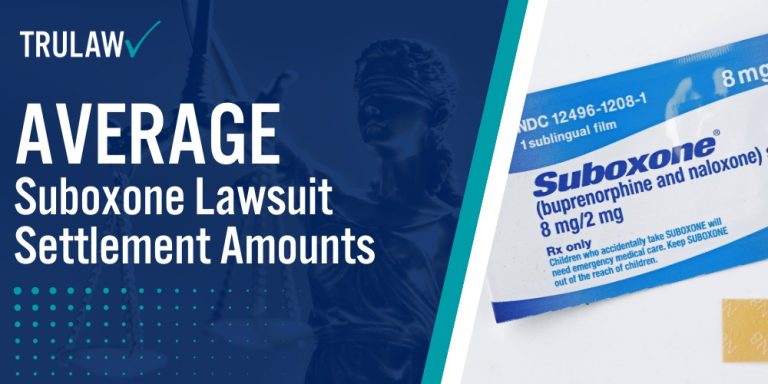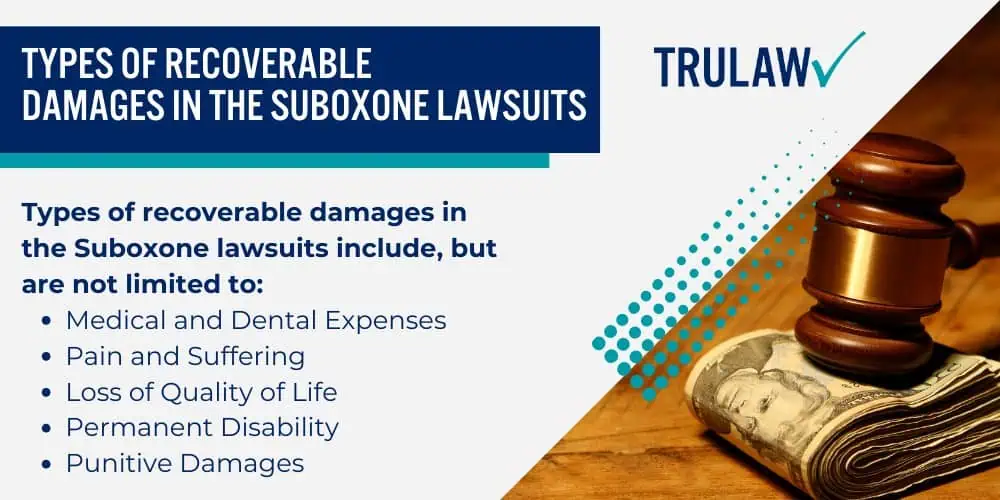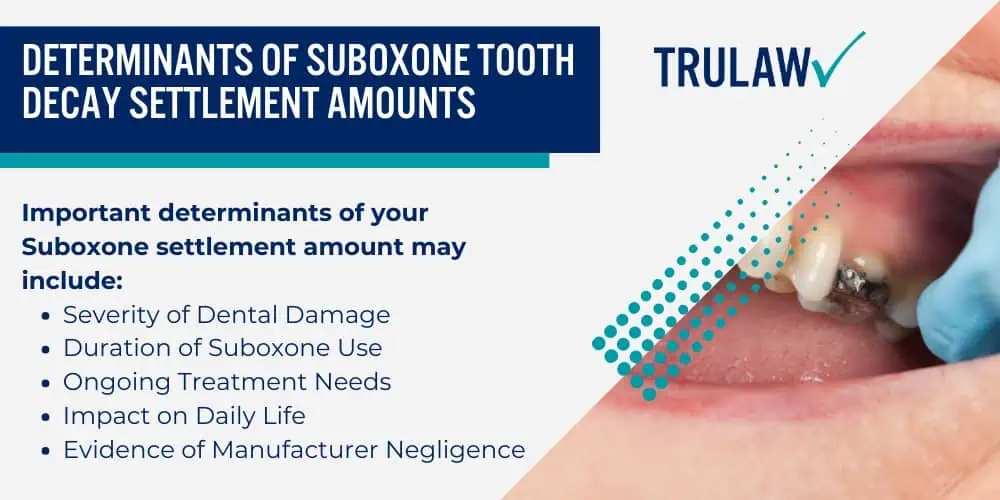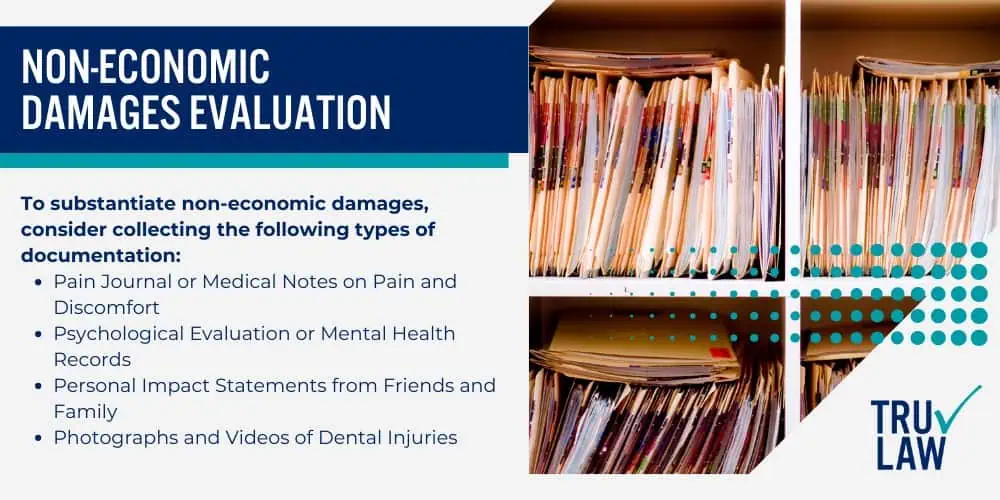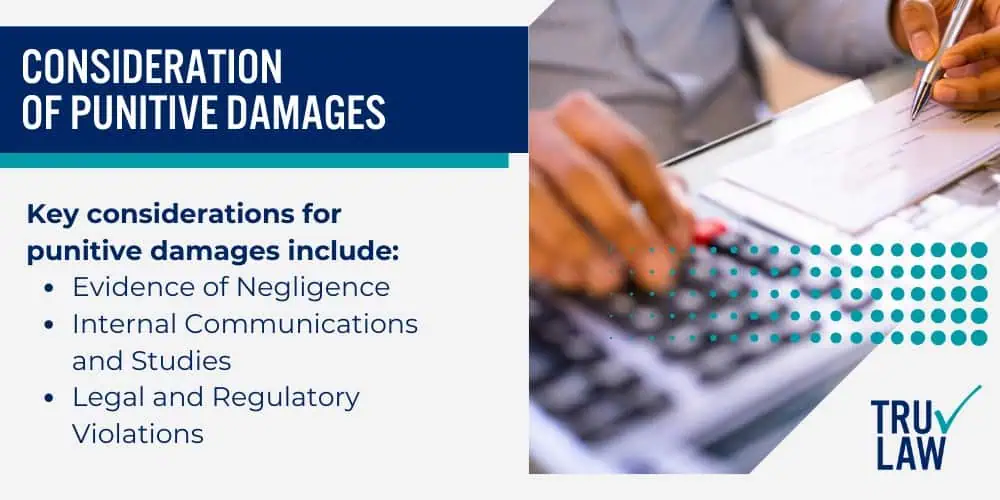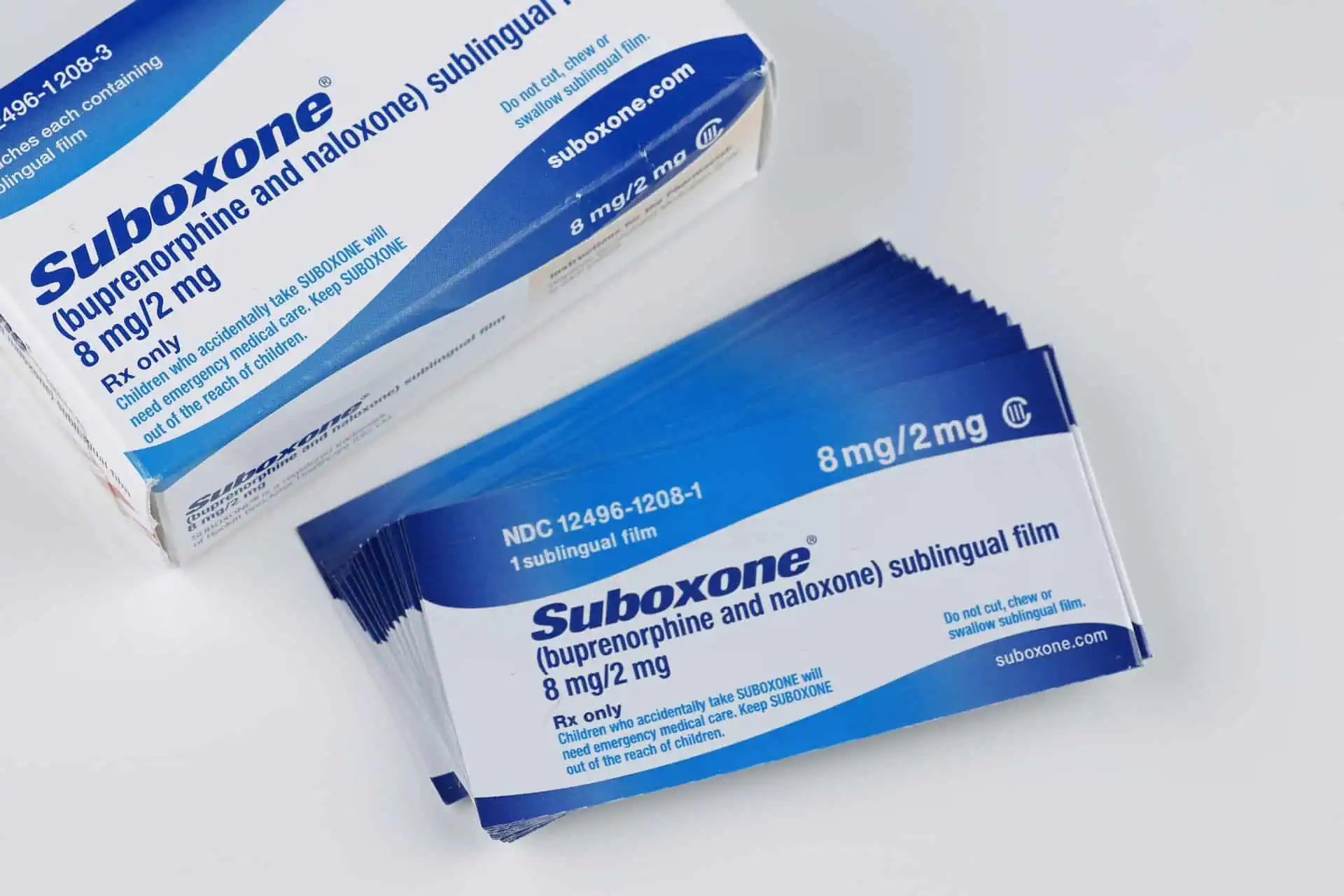Suboxone, commonly used to manage opioid addiction, is administered sublingually (under the tongue) and designed to dissolve in the mouth.
While this method is effective for drug absorption, it exposes the teeth and gums to the medication’s ingredients, which can contribute to oral health issues.
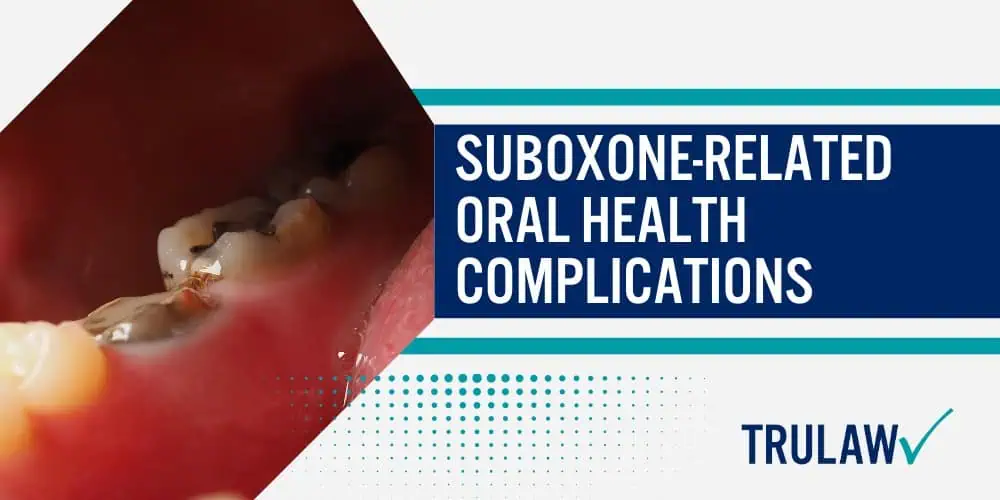
Patients using Suboxone long-term have reported complications such as severe tooth decay, dental erosion, and dry mouth (xerostomia).
These conditions can significantly impact oral health, requiring costly and extensive dental treatments.
Tooth Decay and Dental Erosion
One of the most commonly reported side effects of Suboxone use is extensive tooth decay and erosion.
The sublingual administration of Suboxone involves prolonged exposure to the drug’s acidic ingredients, which can gradually erode tooth enamel and make teeth more susceptible to decay. This has led to numerous legal claims, known as the suboxone tooth decay lawsuit, against the manufacturer for severe dental issues caused by the drug’s use.
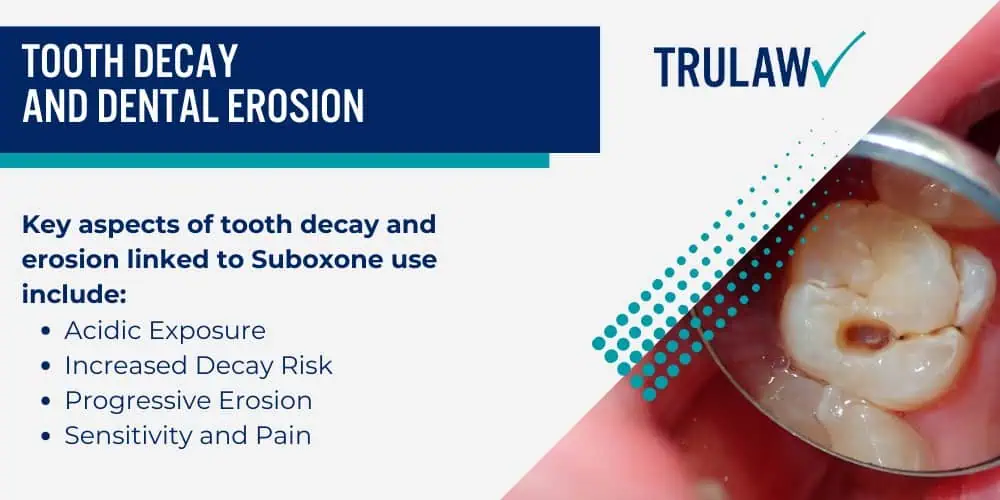
Key aspects of tooth decay and erosion linked to Suboxone use include:
- Acidic Exposure: The acidic nature of Suboxone can soften and wear down tooth enamel, leaving teeth vulnerable to cavities, chipping, and other structural damage.
- Increased Decay Risk: Prolonged exposure can lead to deep cavities that may require extensive interventions like fillings, crowns, or even extractions.
- Progressive Erosion: For many patients, dental erosion from Suboxone use is a gradual process, leading to worsening symptoms over time that may not be reversible without treatment.
- Sensitivity and Pain: As enamel erodes, teeth become more sensitive, causing pain or discomfort when eating hot, cold, or sugary foods, further impacting quality of life.
These effects emphasize the importance of early intervention and preventive dental care for individuals using Suboxone, as untreated decay can lead to further complications and costly restorative treatments.
Xerostomia (Dry Mouth) and Its Consequences
Suboxone is also associated with xerostomia, or chronic dry mouth, which can increase the risk of dental issues.
Saliva protects your teeth by neutralizing acids and washing away bacteria.
Reduced saliva production makes the mouth susceptible to acid build-up, accelerating decay and other oral health problems.
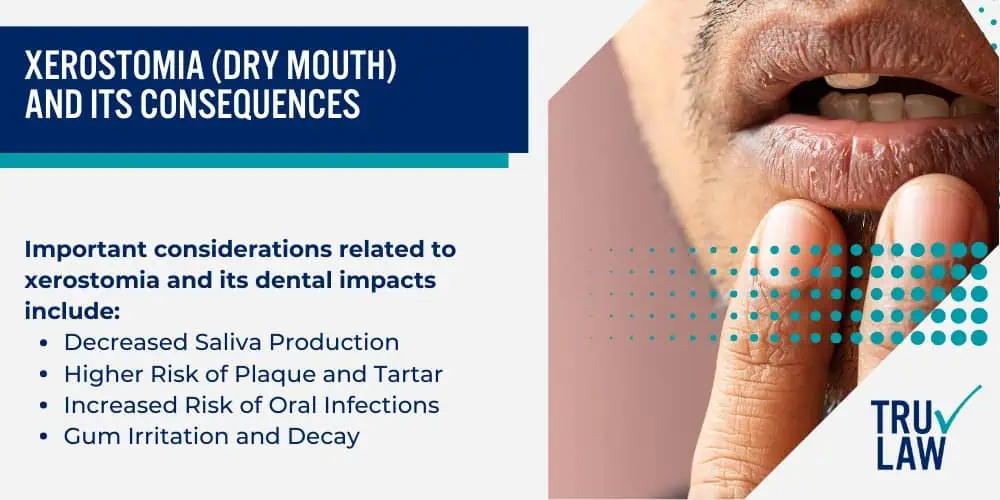
Important considerations related to xerostomia and its dental impacts include:
- Decreased Saliva Production: Suboxone often reduces saliva flow, leading to a dry mouth and increased bacteria, which can rapidly worsen oral health.
- Higher Risk of Plaque and Tartar: With less saliva, the mouth struggles to naturally cleanse itself, leading to faster accumulation of plaque and tartar, which can result in gingivitis and gum disease.
- Increased Risk of Oral Infections: Chronic dry mouth can lead to bacterial and fungal infections, such as candidiasis (oral thrush), which adds further health complications.
- Gum Irritation and Decay: Dry mouth increases the acidity in the oral cavity, heightening the risk of gum irritation, receding gums, and decay at the gum line, which is challenging to treat and may require specialized care.
Xerostomia contributes to dental decay and impacts a patient’s comfort and overall oral health.
For Suboxone patients, regular dental checkups, improved oral hygiene, and the potential use of saliva substitutes can help mitigate some of these risks and reduce the likelihood of severe dental complications.
